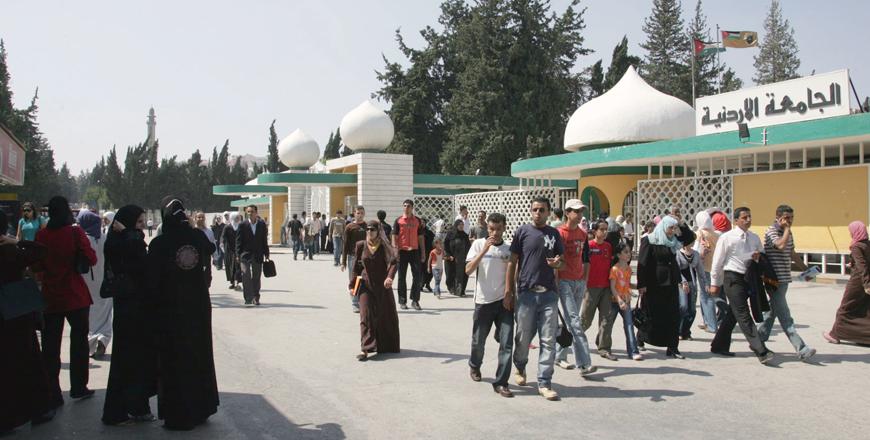You are here
‘28,275 students to be accepted at public universities’
By JT - Aug 12,2015 - Last updated at Aug 12,2015

The University of Jordan in Amman is among the nine public universities to which students who passed the General Secondary Education Certificate Examination can apply through the Unified Admissions Committee
AMMAN — A total of 28,275 seats will be available for Tawjihi students for the 2015-2016 academic year at the Kingdom’s public universities, under a decision announced by the Higher Education Council on Wednesday.
The seats, which are for the regular programme, cover nine of the Kingdom’s 10 public universities, since students wishing to study at the German-Jordanian University have to apply to it directly.
In a statement carried by the Jordan News Agency, Petra, the council said the number means that all students who passed the General Secondary Education Certificate Examination (Tawjihi), with a score of 65 per cent and above, will be accepted.
Public universities had announced that they can accept around 30,000 students, according to Petra.
The deadline to apply to public universities through the Unified Admissions Committee is Thursday midnight.
Since the application period started last Wednesday, the committee has received 31,000 online submissions, Petra quoted its director, Ghaleb Hourani, as saying.
Around 28,573 students, who have achieved an average score of 65 per cent and above in Tawjihi, are eligible to apply to public universities, Hourani said last week.
A total of 49,972 students sat for the Tawjihi academic stream this summer, of whom 20,521 passed, marking a pass rate of 41.1 per cent, Education Minister Mohammad Thneibat said late last month.
Students’ Tawjihi scores decide their future in higher education. It is the main criterion to determine the specialty in which they can major, the public university at which they can enrol and whether they are qualified to go to university.
Students who have Tawjihi grades that do not qualify them to study specific subjects at public universities have the choice to apply through the parallel programme.
Tuition fees for this programme are higher than regular programmes and vary from one university to another.
In addition, students have to apply directly to the university at which they want to study and have the option of applying to more than one.
Related Articles
AMMAN — The Unified Admissions Committee will begin receiving applications to public universities on Wednesday, August 5 through Thursday, A
AMMAN — The Unified Admission Committee on Thursday midnight finished receiving applications for enrolment in the regular programme at publi
AMMAN — Names of students admitted to public universities for the 2015-16 scholastic year under the Unified Admission List will be announced















